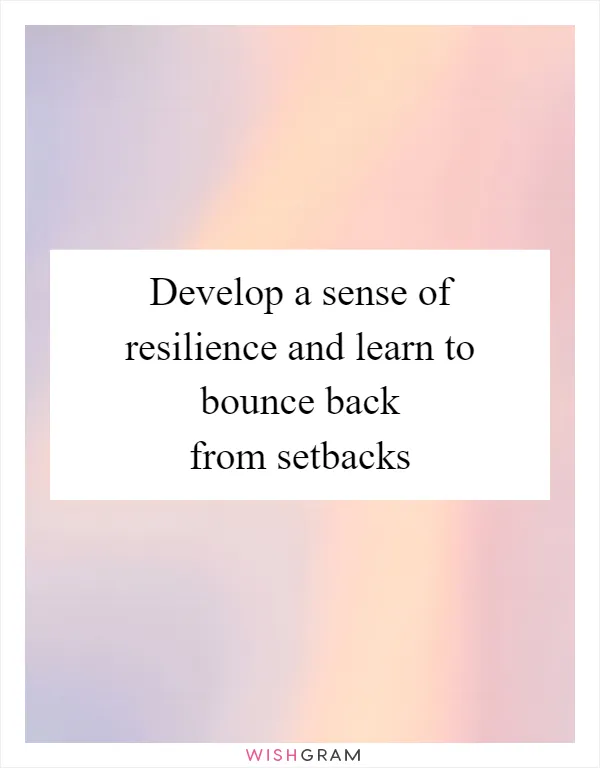Develop a sense of resilience and learn to bounce back from setbacks
Developing a sense of resilience is crucial in life as it helps us bounce back from setbacks. Life is full of ups and downs, and setbacks are inevitable. However, it's how we respond to these setbacks that truly matters. Resilience is the ability to adapt, recover, and grow stronger in the face of adversity. It allows us to overcome challenges, learn from our experiences, and ultimately thrive.
One way to cultivate resilience is by embracing a positive mindset. When setbacks occur, it's easy to get caught up in negative thoughts and emotions. However, by consciously choosing to focus on the positive aspects of the situation, we can shift our perspective and find opportunities for growth. Remember, setbacks are not permanent roadblocks but temporary hurdles that can be overcome.
Another important aspect of resilience is maintaining a strong support system. Surrounding yourself with people who uplift and encourage you can make a significant difference when facing setbacks. Whether it's family, friends, or mentors, having a support network provides emotional support, guidance, and different perspectives. They can offer valuable insights and help you see the bigger picture, enabling you to bounce back more effectively.
Additionally, developing resilience involves learning from setbacks rather than dwelling on them. Take the time to reflect on what went wrong and identify any lessons that can be learned. By doing so, you can gain valuable insights into your strengths, weaknesses, and areas for improvement. This self-reflection allows you to grow and develop new strategies to overcome future challenges.
It's important to remember that setbacks are not a reflection of your worth or abilities. Everyone faces setbacks at some point in their lives, and it's how you respond that defines you. Instead of dwelling on past failures, focus on your strengths and accomplishments. Celebrate your successes, no matter how small, and use them as a reminder of your resilience and ability to overcome obstacles.
Building resilience also involves taking care of yourself both physically and mentally. Engaging in activities that promote self-care, such as exercise, meditation, or hobbies, can help reduce stress and improve overall well-being. Prioritizing self-care allows you to recharge and approach setbacks with a clearer and more focused mindset.
Lastly, remember that resilience is a journey, not a destination. It takes time and practice to develop this skill. Be patient with yourself and allow room for growth. Each setback you encounter provides an opportunity to strengthen your resilience and bounce back even stronger than before.
